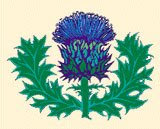Originally published in Harper's New Monthly Magazine
March 1885, pages 601-612.
Author: Frederick Daniel
(continued from Part 2)
The account of the early life of Washington written by Mason L. Weems was in a great measure a fanciful performance; his budget of anecdotes with a moral tendency was palmed off on the world simply because he was the first to take the field with a life of the great man.
Though most of Weems's anecdotes must be taken as fabrications - the medium of a species of moralizing chaff addressed to the young - it is undeniable that his work was instrumental in preserving certain items in regard to his "divinity" that otherwise would never have been published. Zealous to serve his own advancement through an enthusiastic adoration of the hero, it became for him an easy task to portray the latter as a demigod. The following bit of grandiloquence might serve as a model for many a rural paper even of this advanced age: "We do not look for a whale in a mill-pond, but in the main ocean. On the same rule must we not look for Washington in America, that greatest continent, which, rising from beneath the frozen pole, stretches far and wide to the south, running almost the whole length of this vast terrene, and sustaining on her ample sides the roaring shock of half the watery globe? And equal to its size is the furniture of this vast continent, where the Almighty has reared His cloud-capped mountains, and spread His sea-like lakes, and poured His mighty rivers, and hurled down His thundering cataracts, in a style of the sublime so far superior to anything of the kind in the other continent that we may fairly conclude that great men and great deeds are designed for America."
The Life of Washington was Weems's main work, based on the fact of his having been "Rector of Mount Vernon Parish." It was written in 1809, and was during many years afterward peddled by him in person throughout Virginia, meeting, however, with a very scanty sale. He was the first book canvasser that ever traversed the State. In his way he was quite a character, according to the picture drawn by a gentleman now living in Fredericksburg, who in his youth knew him. "I have often seen him," said this gentleman, "endeavoring to sell his books about town and on court greens. He was a Prince William [County] man, and a minister of the Episcopal Church, though all his children became Methodists. It was his custom to travel about in a small vehicle selling, in addition to his Life of Washington, his Life of Marion, and two pamphlets entitled The Drunkard's Looking-Glass and The Swearer's Prayer. Now and then he would scatter short moral pieces in doggerel, and printed on slips of paper. He was extremely fond of playing the violin, and used it also as a means to draw attention to his wares. Being a parson, and hence indisposed to exhibiting himself as a fiddler in public, he was accustomed to conceal himself, while handling the instrument, in a species of booth made by means of blankets stretched on poles. On one occasion, while thus engaged, the wind blew down the side of his booth against which his back was turned, exposing him to the full view of a gaping crowd. Unconscious of the accident, he kept fiddling away, till the crowd, no longer able to restrain its tittering, burst forth in a roar of laughter which instantly forced him to see himself as others had been seeing him. His annoyance was tremendous, and he forthwith decamped from the ground, amidst a hurricane of derisive remarks showered upon him by the rough multitude."
(to be continued)
Subscribe to:
Post Comments (Atom)

No comments:
Post a Comment